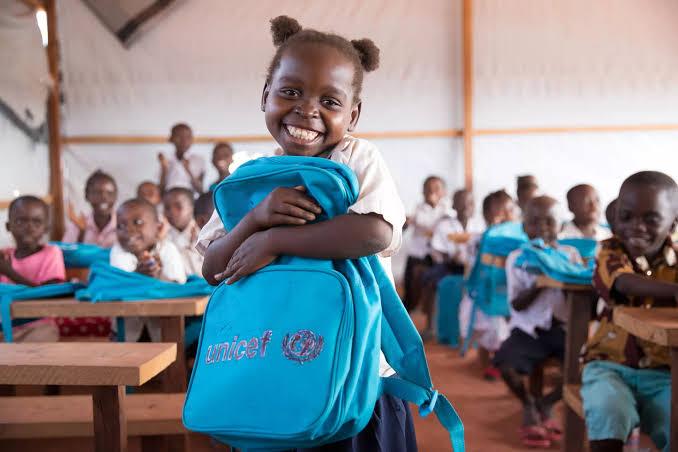The United Nations Children’s Fund (UNICEF) has raised alarm over poor literacy among children in Borno, Adamawa, and Yobe states. It revealed that 72% of the children who completed their primary school education in these states can not read ‘simple texts’.
The officer-in-charge of UNICEF’s Maiduguri Field Office, Joseph Senesie made this statement during a media briefing in Maiduguri on Tuesday. The briefing was part of the activities commemorating this year’s Children’s Day.
Senesie added that upon the completion of their primary school education, only 62% of these children transit to the Junior Secondary School. He noted that despite improvements in school enrollments, about two million children are still out of school in the region.
Furthermore, the spokesperson cited other challenges facing children in the area that need urgent attention. He explained that only three in every 10 children have their births registered in Borno, Yobe, and Adamawa, adding that 12 local government areas in Borno and Yobe continue to record high numbers of unvaccinated children.
Unfortunately, these have denied the children legal identity and access to education, and protection services. Additionally, the lack of access to healthcare makes these children vulnerable to preventable diseases.
Read more: South Africa: Mother sold her 6-year-old daughter for N1.8m, bagged life imprisonment
Therefore, Senesie stressed the urgent need to prioritize quality education, sanitation, nutrition, healthcare, and child protection. He added that these efforts reflect the goal of this year’s Children’s Day theme, “Tapping the Untapped Natural Treasure.”
However, Senesie clarified that UNICEF has contributed greatly to the safety of children through vaccines and immunization services. He disclosed that in 2024, the agency treated nearly 600,000 children for severe acute malnutrition. Also, it reached 2.48 million children below the age of 5 with vitamin A supplementation and immunized 1.2 million children with pentavalent vaccines.
Nonetheless, he commended the governments of the North-East region for taking steps to safeguard the lives and well-being of children. These efforts include implementing the Child Protection Law and declaring five local government areas open-defecation-free. Additionally, Borno State contributed ₦100 million to the Child Nutrition Fund and inaugurated Local Government Committees on Food and Nutrition across all 27 LGAs.
Senesie also thanked partners such as BMZ/Germany, FCDO/UK Government, SIDA, the EU, Norway, Canada, GPE, ECW, and others for their continued support.









